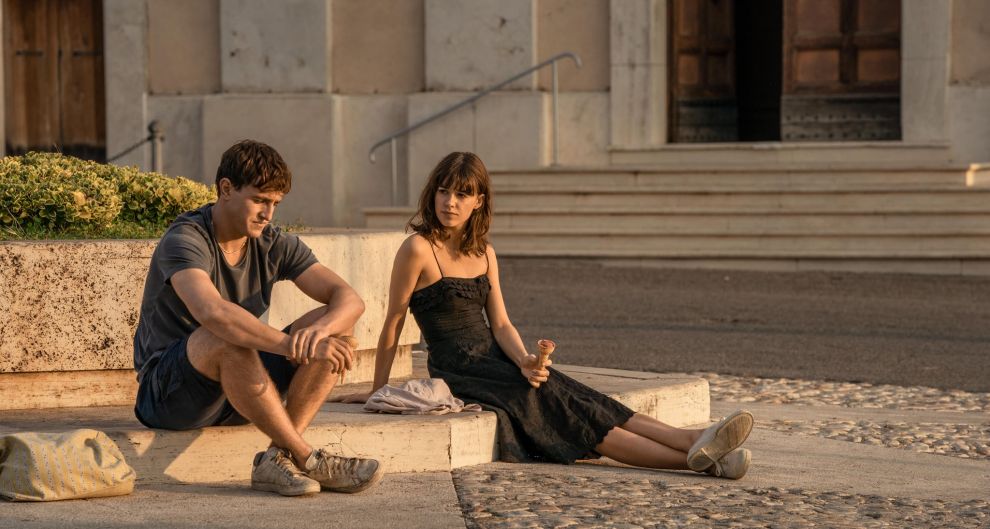
Perhaps everyone’s first televisual memory of lockdown will inevitably be the murder, mayhem, and madness of The Tiger King. This true crime eight-part miniseries coincided with the first weekend of lockdown, where the world’s curiosity was piqued by the aptly named Joe Exotic.
In the show, we saw the inner workings of the murky big-cat industry in America. Like many of the onscreen wild animals we saw in captivity, we too perhaps felt confined to our own cages, subject to the wild but mesmerising turmoil of Joe Exotic and his motley crew of zoo staff. While our own lives felt strange and suffocating, at least we could take solace in the fact that we were not living in Joe’s world.
As the weeks began to blur together, our thirst for the resumption of college was quenched with the faithful adaptation of Sally Rooney’s immensely popular novel Normal People. The miniseries came at us in bite-sized chunks, with a slice of our beloved Trinity College life in every episode.
If the goal was to make us painfully aware of just what we were missing by studying from home, it certainly worked. The release of Normal People, combined with quarantine, invited us to slow down and get lost in two enthralling performances that reminded us how complicated human beings really are, and taught us that with hesitation and a lack of reflection, miscommunication can easily arise.
Just as we were adjusting to the rhythm of life in lockdown, the very publicised death of George Floyd caused pandemonium not just in the US, but also worldwide. Floyd’s murder sparked riots and protests of solidarity internationally with many protesters showing little adherence to governmental guidelines on coronavirus.
Images and videos caught on camera phones were shared on social media, causing many of the younger generation to take to social networking platforms to tackle issues of systemic racism with a shared passion that might not have been exercised were it not for the pandemic. The call for change was explosive and even the mainstream media was placed under scrutiny for perpetuating “fake news”.
This, in turn, promoted a greater calling to diversify our entertainment, with many leading figures in Hollywood calling for better representation and the medium of film to be used as a means of combating antiquated views and beliefs. Films such as 13th, Selma and Moonlight, which feature lead actors of colour, were rightfully given newfound attention.
It wasn’t surprising that at the epicentre of the growing Black Lives Matter movement, one of America’s most influential and outspoken auteurs on racial and civil rights issues, Spike Lee, released Da 5 Bloods. While some were disappointed in Lee’s latest installment, it lit a fire under his seminary thirty-one-year-old film, <em?Do the Right Thing, increasing its audience and serving as a stark reminder that although we have traveled far, we have a long way to go in terms of achieving widespread anti-racism.
Although there were brief attempts to re-establish some semblance of normality to the badly beaten film industry, the partial reopening of cinemas in Dublin didn’t last. Christopher Nolan’s Tenet marked the first major cinematic release since the pandemic took hold of the world, with audiences determined to enjoy the cinematic experience, despite a massively reduced seat count.
Instead of looking forward to a raft of highly anticipated movies this summer, we had to make do with restorations, re-releases and family favourites being screened due to the numerous delays in film production. Along with the multiple screenings of Disney classics, there were some diamonds in the rough, with the re-releases of cult classics such as Goodfellas.
Many filmmakers have opted to hold off on the release of their latest projects for a while longer, while other auteurs such as Martin Scorsese or Charlie Kaufman have given in to the allure of the streaming behemoth, Netflix.
With the rise of Amazon and other streaming services, many cinephiles fear that the once highly anticipated trip to the cinema may fall the way of other pre-coronavirus rituals that have been unraveled in these unprecedented times. If the isolation period has taught us anything however, it’s that a love for film can persevere, even in the strangest of circumstances.






